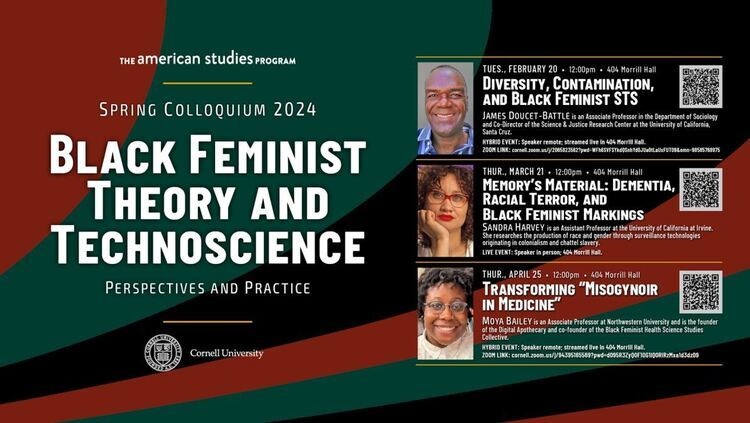
- Morrill Hall, 404
American Studies Spring Colloquium, James Doucet Battle, "Diversity, Contamination, and Black Feminist STS"
Professor James Doucet Battle
Department of Sociology Science & Justice Research Center
University of California, Santa Cruz
Abstract: Sub-Saharan genetic diversity highlights the increasing research value of diasporic and transnational African-descent populations. Yet, sub-Saharan HeLa cells originating from Henrietta Lacks have “contaminated” laboratories around the world, calling numerous research studies into question. In this talk, James Doucet-Battle will highlight the salience of Black Feminist STS approaches in rethinking the intersectional pathways of race and gender. Drawing from his earlier work and ongoing reengagements with Hortense Spillers, Saidiya Hartmann, and Alondra Nelson, Doucet-Battle will offer a collaborative space to think collectively about how HeLa continues to transgress the social, laboratory, and environmental boundaries that circumscribed the life of Henrietta Lacks. Doucet-Battle connects this discussion with his next book project examining the “problem” of diversity in science and society. His work makes robust contributions toward building of a new field of social scientific inquiry on the neoliberal project of diversity through an intersectional engagement with the cultural economies of science, medicine, and society. This undertaking aims to show that gender, ancestry, kinship, and their networked community formations make legible the reproduction of power, the asymmetrical conditions of racial and gendered exchange, and their novel and perennial implications for both science and society.
Bio: James Doucet-Battle is an Associate Professor in the Department of Sociology and Co-Director of the Science & Justice Research Center at the University of California, Santa Cruz. He is a graduate of the University of California, Berkeley/University San Francisco Joint Medical Anthropology Program. His research and teaching interests lie at the intersections of science, technology and society studies, diaspora studies, development studies and anthropological approaches to health and medicine. He applies these interests to study the political economy of genomic discourses about race, gender, risk, and health disparities. A former Ford Foundation Fellow and UC President’s Postdoctoral Fellow, his book, Sweetness in the Blood: Race, Risk, and Type 2 Diabetes (Minnesota, 2021) examines the translational challenges facing clinical research recruitment and community education outreach efforts aimed towards at risk minority groups, particularly African Americans.
